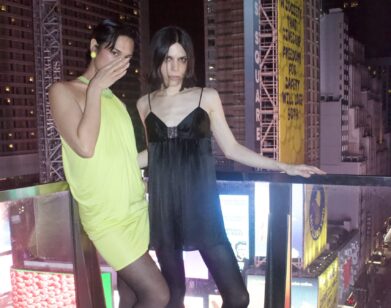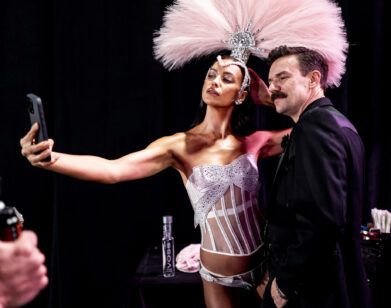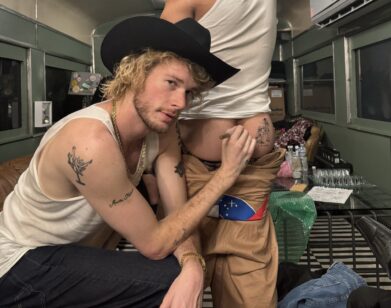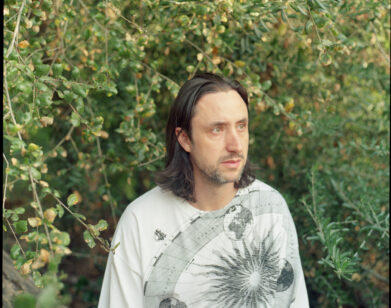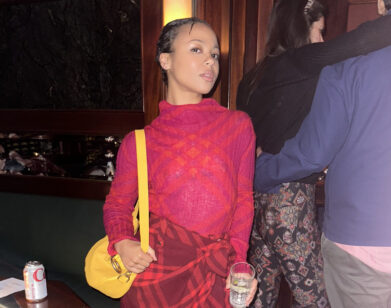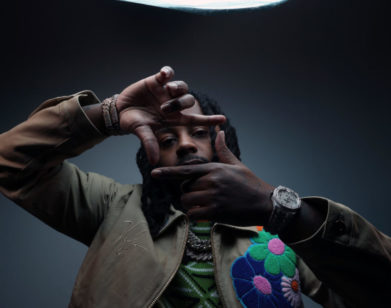Toni Braxton and Missy Elliott on the Power of the Tongue
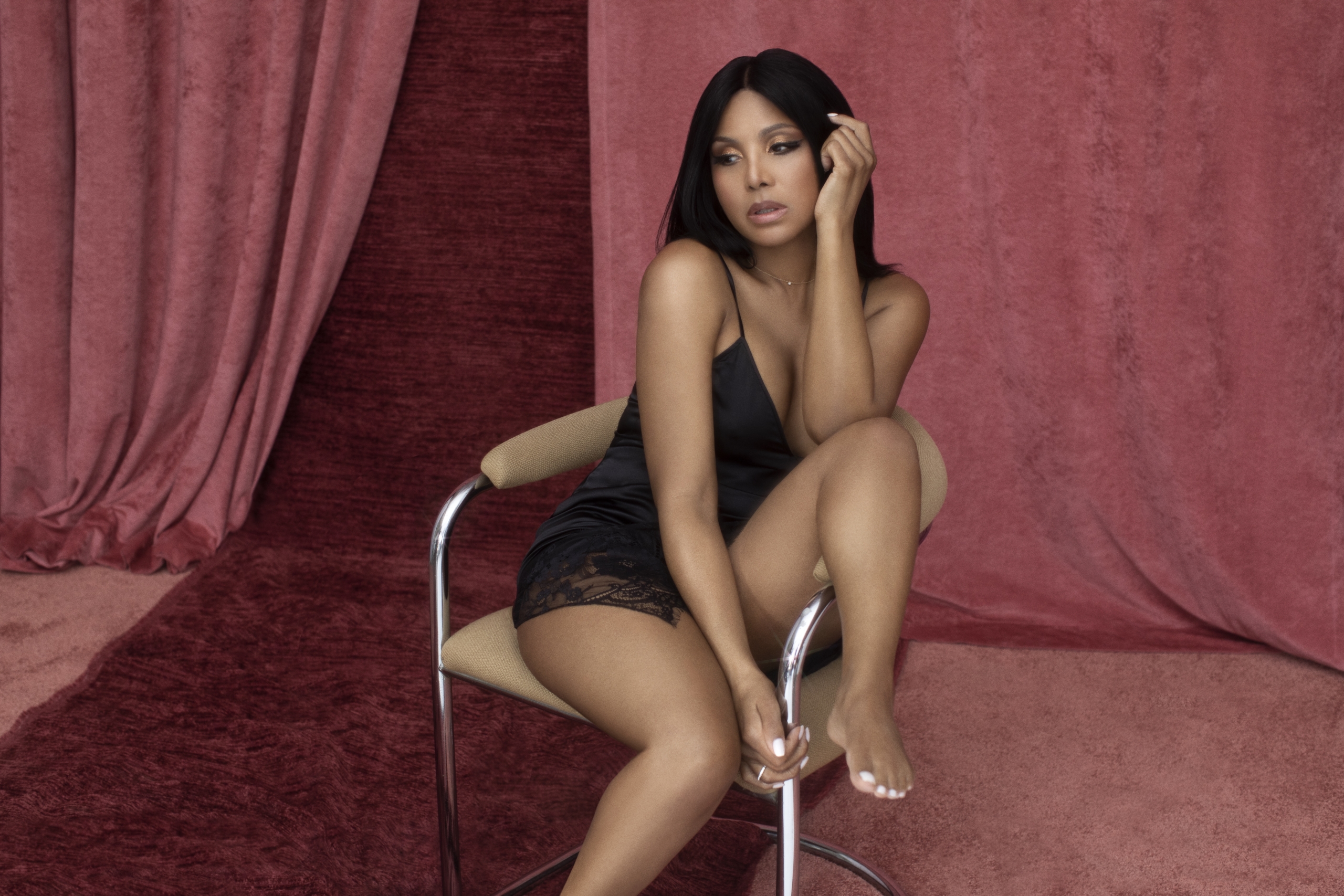
Photos by Miller Mobley.
Toni Braxton always knew that she was destined for greatness. “I had this little arrogance about me,” she says after recalling her early school days. “I would say, ‘One day I’ll be really famous.'” This kind of foresight gave her a career that has spanned 25 years, seven Grammys, and countless hits like “Un-Break My Heart,” “He Wasn’t Man Enough,” and “You’re Makin’ Me High.” Over the years, she’s toyed with different sounds and aesthetics, but it’s her latest project that further cements Braxton’s icon status. Her tenth studio album, Spell My Name, is a self-proclaimed return to home. The album reunited her with frequent collaborator Babyface and features a song titled “Do It” with an artist she’s long admired: Missy Elliott. Below, Braxton and Elliott talk about growing up in the church, Verzuz battles, and why it took them so long to finally work together. —JULIANA UKIOMOGBE
———
MISSY ELLIOTT: Hey!
TONI BRAXTON: Hey, Missy! What’s up, diva? We are doing this finally!
ELLIOTT: Yes. Oh, my god. It has been a long, long, long, time coming. The funny thing is, I thought about it the other day… I said, “Why did it take so long for us to do a record?”
BRAXTON: Look, it took way too long. By the way, you know I love you, I love your voice, I love everything about you. You know I’ve been a Missy fan for a long time. I remember we talked like 20 years ago. A long time ago, for maybe like five minutes. Do you remember that?
ELLIOTT: No, I wish I would have, because I’d have been like, “Girl, where you at? Where the studio?”
BRAXTON: It was real quick. But here we are 20 years later, finally working together. Let me ask you one thing, sis: Which female haven’t you worked with? Because you’ve worked with everybody. From Whitney to SWV to Destiny’s Child. I mean, if you look at anybody out, your name is on it. You’ve imprinted them.
ELLIOTT: You were the only one. You were the only female that I hadn’t [worked with], to be honest. Of course, I didn’t get a chance to work with Aretha Franklin, Chaka Khan, or Anita Baker, those legends. But anybody in that era after, I’ve done records with. There are some from this era that I’d like to work with, too.
BRAXTON: I’ve always paid attention. I’m like, “If she was a boy, the whole world would know it!” I think it’s different for women in the business trying to have our say. It’s not as noted and as noticed. I love that it’s starting to change for us, but I’m a little disappointed. Like, “Look at Missy Elliott. She’s right up there with the works of Babyface, and everybody else who’s been up there,” with all the people you’ve worked with. I’m just so proud to finally get to work with you. I’m like, “girl power, yay!”
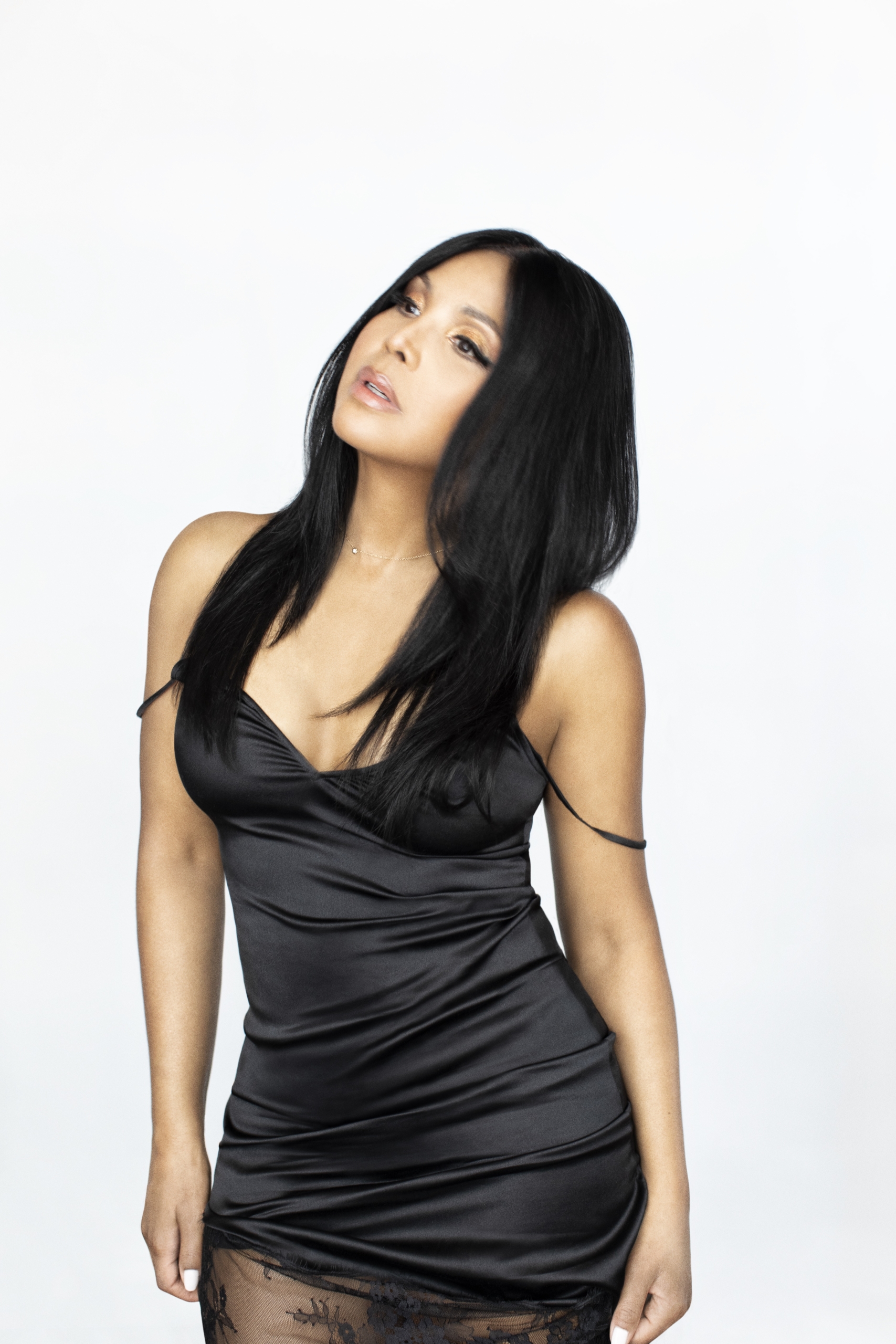
ELLIOTT: Well, but look at you, who has had your hands in writing. I think it’s because we’re not as boisterous. And not even to say that the guys are, but maybe it just seemed like the girls don’t get into the behind the scenes. Maybe it just seems like the girls don’t do that. People should know, “Oh, Toni, she co-wrote this, she co-wrote that, she was part of this production.” I feel like that should be known.
BRAXTON: But it is improving!
ELLIOTT: Oh, yeah. It most definitely is. That’s why I’m happy with Verzuz, because it allows people to see that, especially when the artist can say, “Hey, this person wrote this for me.” Because now we’re in a time where you’re not getting the hard copies to be able to see all the credits. That actually is good, because you get a chance to hear who did what. That’s what I love about it, too. Besides seeing legends get up there. I’m quite sure they called you. Look, you’re probably like, “Oh, no, I would have to do that segment DOLO.”
BRAXTON: Yeah, I can’t. I’m like, “It would have to be me, Mariah [Carey] or Mary J. [Blige] or something.” Us girls from the ’90s. But no, I haven’t put it on the register to do it yet. I know they’ve called you, too.
ELLIOTT: Oh, yeah. I was probably the second phone call after Swizz [Beatz] and Tim[baland] did theirs.
BRAXTON: I’m sure. You think you might do it? Who is there, my god? Do you have a nemesis?
ELLIOTT: I’m going to be quiet.
BRAXTON: Really, some people have a nemesis. I don’t think you have one.
ELLIOTT: Yeah, I really feel like I most definitely could go Missy versus Misdemeanor.
BRAXTON: That’s actually smart. I like that.
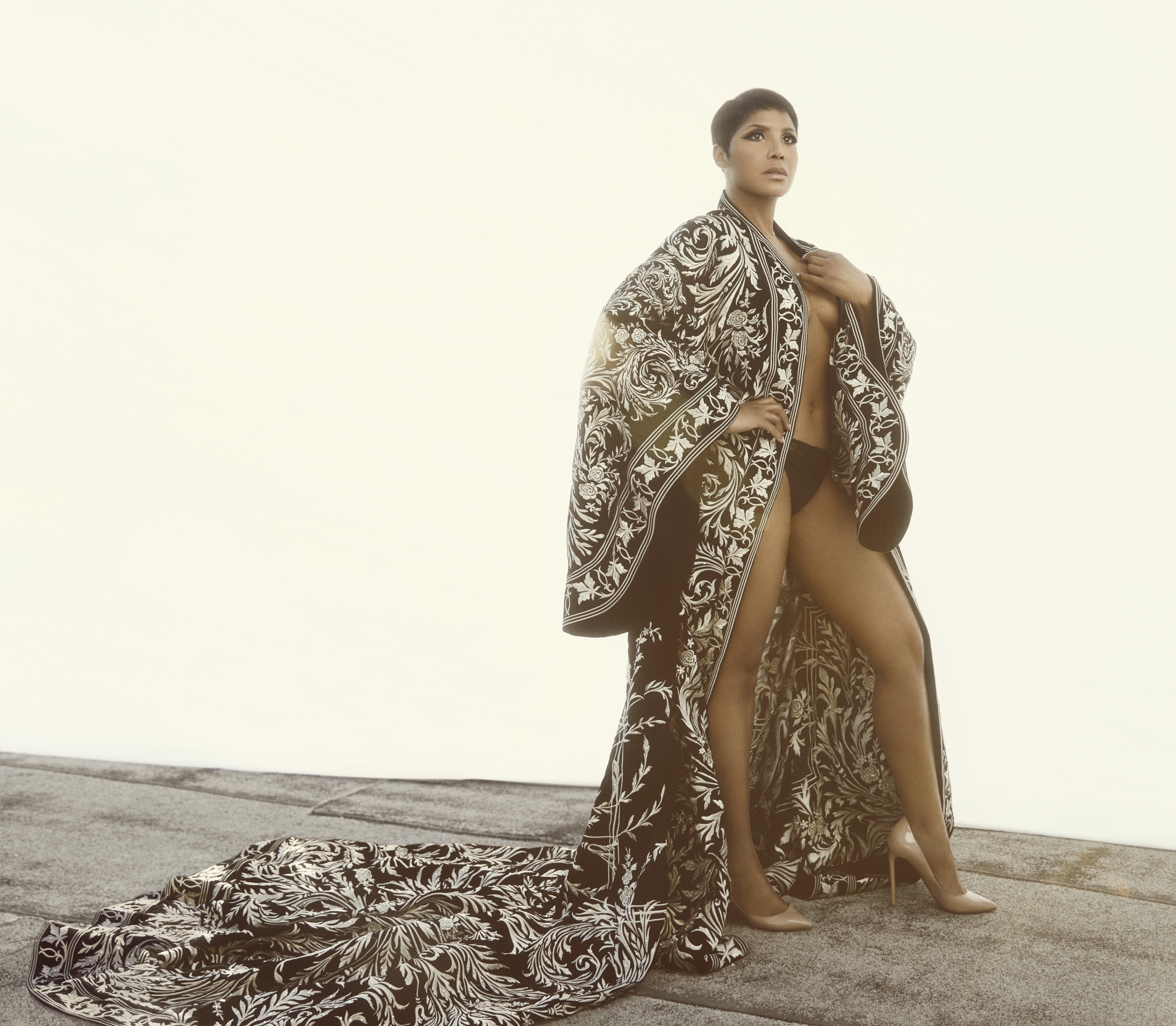
ELLIOTT: But it’s just for the fun of it. I could name a bunch of people just for us to have fun, because I’m going in all my bags. But enough about me. The thing is, I know the celebrity, the superstar, the icon, the legend Toni Braxton. I always wanted to know how you were in school. Were you quiet? Were you like me, just singing?
BRAXTON: For me, it was a little different, because we were really religious when I was younger. We didn’t celebrate Christmas or holidays. Well, actually, let me go back. We celebrated until I was six years old. Then my parents got really religious, apostolic. It was so strict. Imagine having Christmas and holidays, and then it being taken from you. It was a little tough. So, it was different for me in school. I was a little quiet, because I was a country girl. I was a girl that wore dresses all the time, because we couldn’t wear pants.
ELLIOTT: Yeah, people don’t understand coming from the church world, and how deep that is. Were you in the school choir?
BRAXTON: I would sing for the talent shows in school. Guess what I sang? You ready for this, Miss?
ELLIOTT: What?
BRAXTON: “What a Friend We Have in Jesus.” That’s what I sang.
ELLIOTT: I know that’s right. You better take them to church.
BRAXTON: People were singing whatever the top songs were from Earth, Wind & Fire or Michael Jackson. And I came afterwards singing, “What a Friend We Have in Jesus.” Not a good look. But I was so used to being odd that it didn’t matter to me by the time I got to high school.
ELLIOTT: But then when you would come home from school, was that like another world? Because now you have your siblings, and all your siblings sing. When you came home from school did y’all have the story of the Jacksons? Was y’all rehearsing?
BRAXTON: My mom didn’t play. She fostered it, but she fostered it strictly. We would practice all the time, and my dad was a minister. By the time I got to high school, we were United Methodist, but my parents are still apostolic in their head. So while the people at church would celebrate holidays and things like that, we still didn’t. So it was still odd at church, but at home we would just sing all the time. You were an only child. How was it for you? Were you a lonely, only child? Did you have a lot of cousins? Did you have a lot of friends?
ELLIOTT: I most definitely have a lot of cousins, but at my house, it was just me. In my mind, I had siblings. As a child, I really had to create this whole fantasy world. I had a friend named Lisa, another friend named Tony. But I don’t know the rest of them. Mind you, when I say Lisa and Tony, these weren’t people, just so we’re clear. These were my imaginary friends. When my father and mother were arguing, I would shut that door and it would become a whole other world in that room. And that’s why my videos are so like that, because I would have to go look to another place to block it out. Even though I was by myself, it allowed me to be creative. I just had to make up things. I was constantly talking to myself. I said, “People don’t know how powerful the tongue is,” because I would speak things. I would grab a cup and get to thanking everybody with artists in the audience. I always tell the story. My video, “Pass that Dutch,” when I have the doll in front of me—I did that because that’s how I was. I would be in that room and those dolls, in my mind, became people. So I’m sitting there, and I’m thanking everybody. And I’m like, “thank you, thank you, I just want to give a shout out to…” and I would do that faithfully. And I believe that it was just being spoken out.
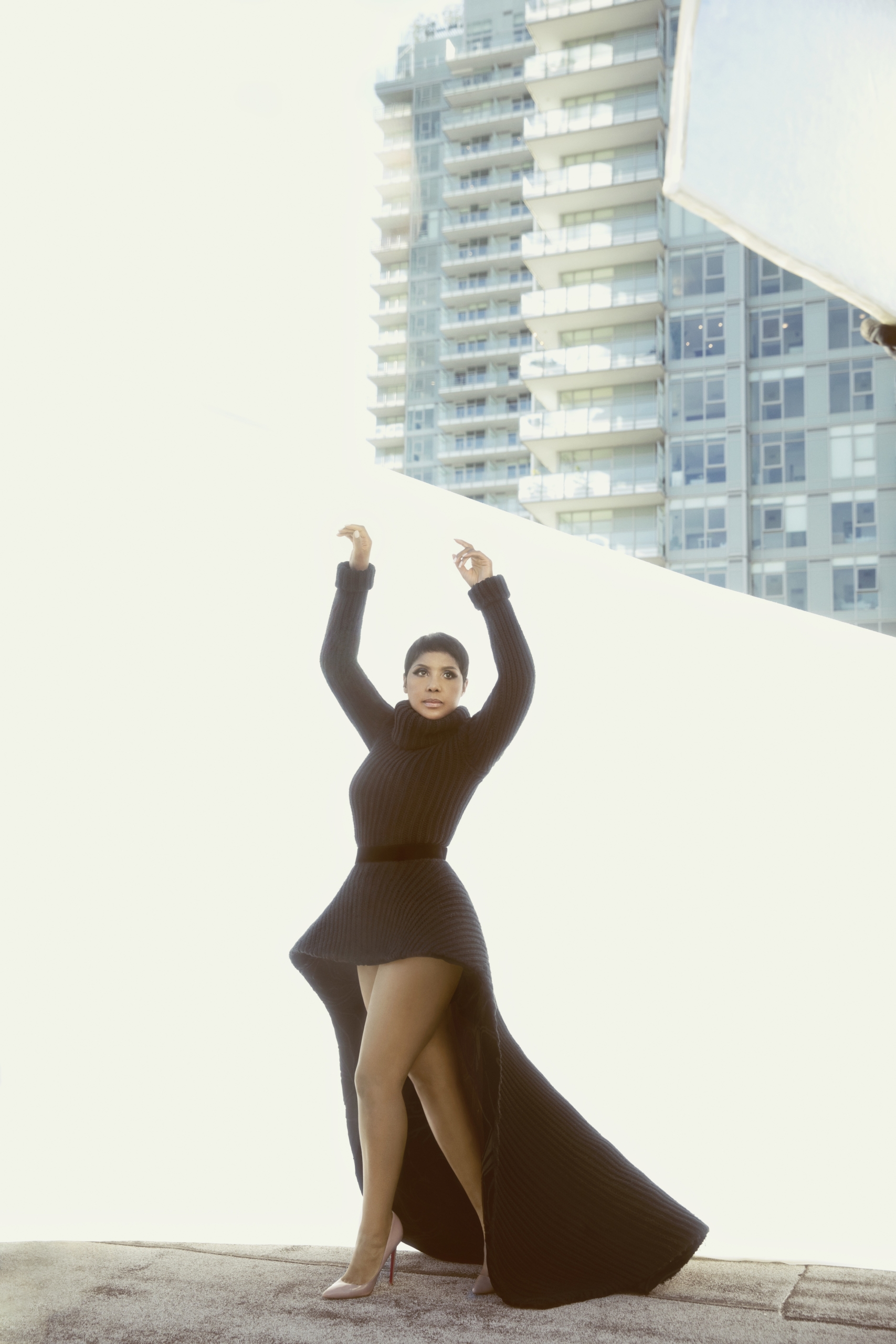
BRAXTON: I think words have so much power. I used to line up glasses in the kitchen and that was my audience. It was my getaway from everything that was going on in my life. Being the oldest it was a little harder for me, because I couldn’t watch Soul Train. I remember sneaking and watching American Bandstand. Any of those shows, I had to sneak, because I wanted secular music so bad, and I loved Rick James. Was your mom the one that was religious when you were growing up?
ELLIOTT: Oh yeah, my mother was heavily in the church. My father, on the other hand, was playing all the secular music in the house, and that’s why I was able to get the best of both worlds. So my mother would be playing gospel, and he would be playing the secular. For whatever reason, I was able to hear the content of the secular but sit and enjoy, and appreciate the harmonies and the soulfulness of all the gospel. Somebody like James Brown, when you listen to him and you listen to the chords that were played in a lot of his music, you can tell there was some church influence.
BRAXTON: I think our upbringing, coming from the church, gave us an “up” on music. It gave us a finer-tuned ear. It made us more conscientious because we got the practice right there. The church pulpit is the stage. You got the congregation, that’s your audience. And so we were comfortable performing by the time it came to us performing. I’ve got to ask you this one question. Your videos are always so creative, and always ahead of the curve. You’re never copying anyone. Everyone’s always copying you. How do you get inspired for your visuals? I think you’re more than a singer-songwriter-producer. I’m like, “Is she a director and not telling us that part of her?”
ELLIOTT: Oh, most definitely a director. I mean, starting back at “The Rain,” Hype [Williams] most definitely thought of the suit that he wanted to see. And June Ambrose basically created the legendary suit. I told Hype, “Hey, I’d like to do what I say in the record. Of course I want to do a part where I’m at the beach. Of course, when I say ‘beep, beep, who got the keys to the Jeep?’ I want to see this oversized Jeep drive off. When I say, ‘I sit on hills like Lauryn,’ I want to be on a hill.” So, we were able to bounce off of each other. The music was so futuristic. They really didn’t know what category to put it in at that time, because it was a sound that hadn’t been heard before. So it was like, “Where do we take this? Do we take this to urban radio? Do we take this to pop?” I think the videos just kept it in a hood place where you could relate to it, and it was just different for everybody. In the end, I think like that because it goes back to that child in that room behind the closed door. I just saw things in a different way.
BRAXTON: I love it. I think you’re brilliant, sis.
ELLIOTT: No, you are brilliant. You are a legend. You are iconic. And you are able to talk this shit, but you are so humble. Is there anything that you want to do that you haven’t done? You’ve been consistent. You have broken records and sold many records. Have you said, “Hey, I want to open up a threading or weave factory, I want to go be an actress?” Is there something else that you haven’t tapped into that you want to do?
BRAXTON: I’ve never originated a play. I’ve always wanted to originate one, because I feel like Toni needs a Tony.
ELLIOTT: Speak it. That tongue is so powerful.

